Sustainability with Soul: Crafting a Greener Future
Our Roots, Our Responsibility
At McPrice Myers, sustainability isn’t just a label—it’s the heartbeat of everything we do. It starts with reading the land. Our approach—rooted in organic, biodynamic, and regenerative practices—is about harmonizing with nature to leave the vineyard richer and more vibrant than we found it. From enriching the soil with composted grape pomace to planting a lively mix of cover crops (rye, fava beans, sweet peas, and more!), we’re cultivating not just grapes, but long-term health and biodiversity. Cover crops act like a daily multivitamin for the earth—boosting nutrients, anchoring soil moisture, and inviting bees, butterflies, and beneficial creatures to our vineyard community.
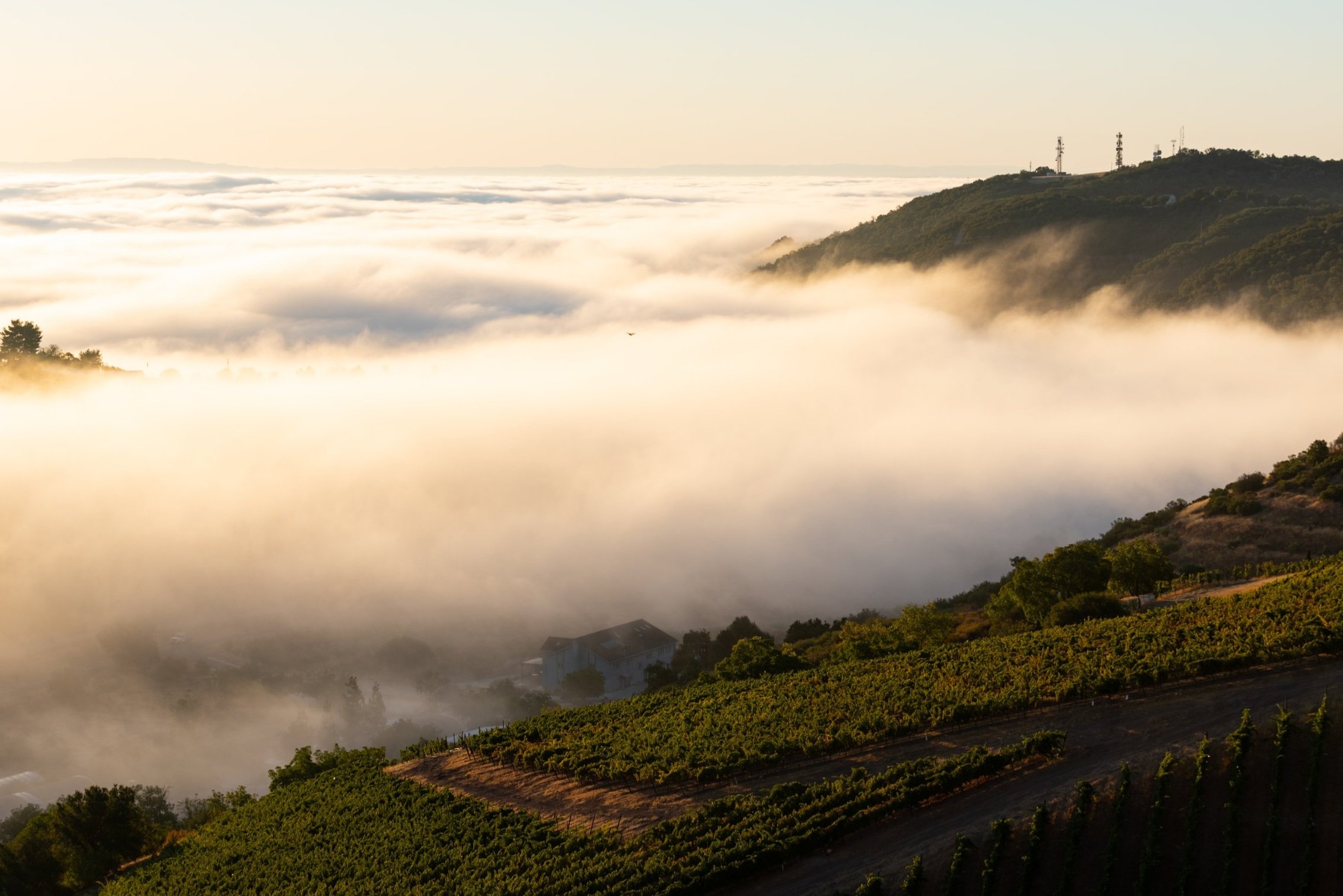
Wine & Sanctuary: Thoughtful Spaces Powered by the Sun
Our commitment to sustainability is evident in our buildings. Both the tasting room and winery run 100% on solar energy. Hospitality spaces, including the guesthouse and back well, operate on their own independent power grids.
The new tasting experience? Built from repurposed shipping containers, splashed with our signature orange and green, and powered by solar energy with EV charging stations for visitors. Nestled under century-old oaks and native landscaping, it’s a place designed for community, comfort—and yes, you can even bring your dog (bandana optional).
Soil Symphony & Water Wisdom
We believe healthy soil makes the most expressive wines. That’s why our vineyard team avoids pesticides, minimizes tilling, and lets microbial life thrive—all techniques designed for soil health that span generations.
Water is precious here. We use steam to clean barrels, not gallons of water. Our vines receive water only when they truly need it—utilizing scientifically informed deficit irrigation strategies and efficient drip systems. And our clever leach field captures excess rain and reuses it for irrigation—keeping salts balanced and water usage smart
Living with the Land: Wildlife & Gentle Practices
We work alongside nature’s keepers—releasing ladybugs to manage pests like leafhoppers. In years with dense vine canopies, we double the beneficial insects to naturally maintain orchard health.
Our vineyard is also a sanctuary for birds of prey—raptor boxes invite owls and hawks to help control rodents. When rattlesnakes cross our path, four specially trained team members humanely relocate them. Bobcats roam freely, keeping smaller critters in check. And of course, Grayby—the eternally charming feral cat—mouses around the property, bringing joy and keeping unwelcome rodents at bay.
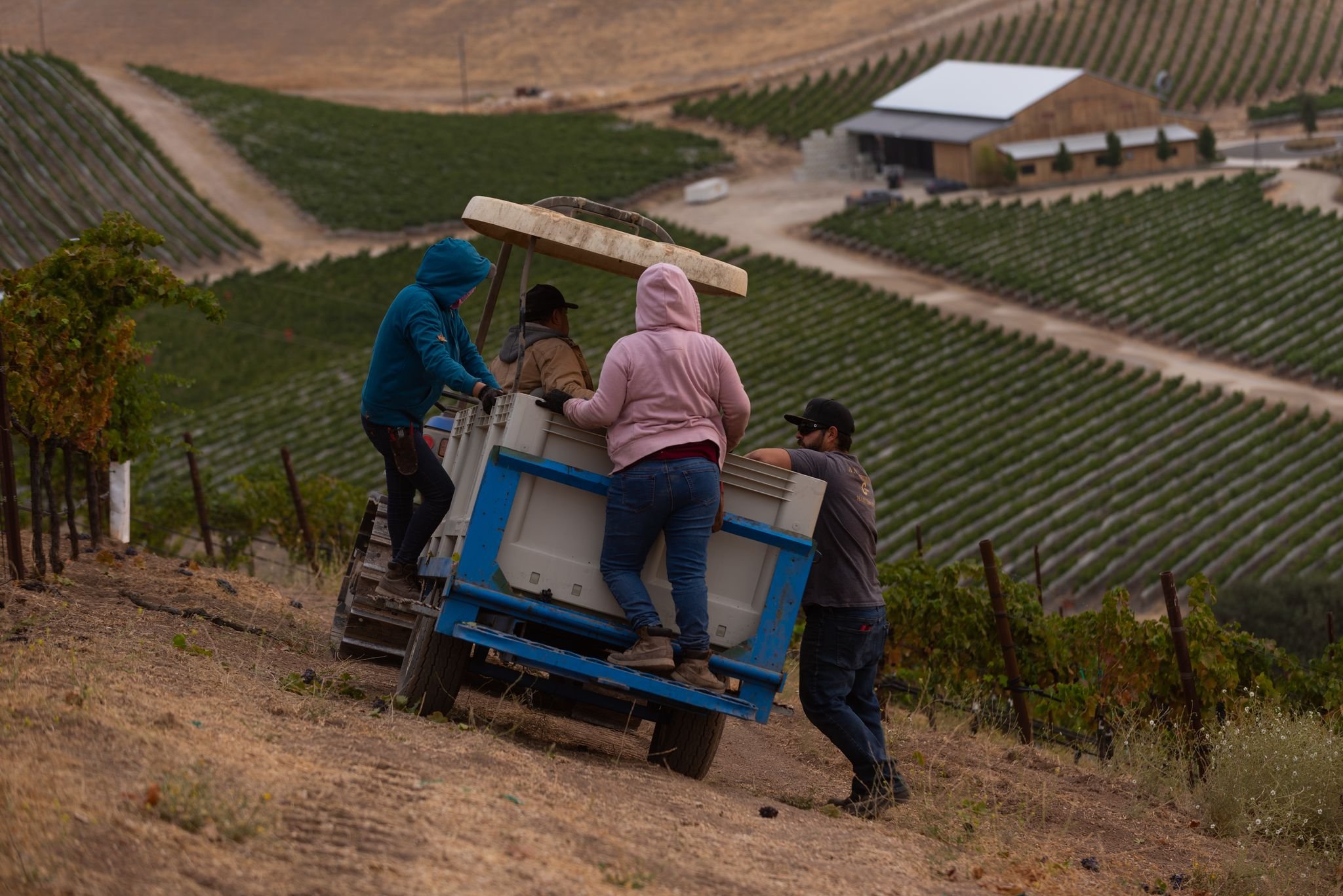
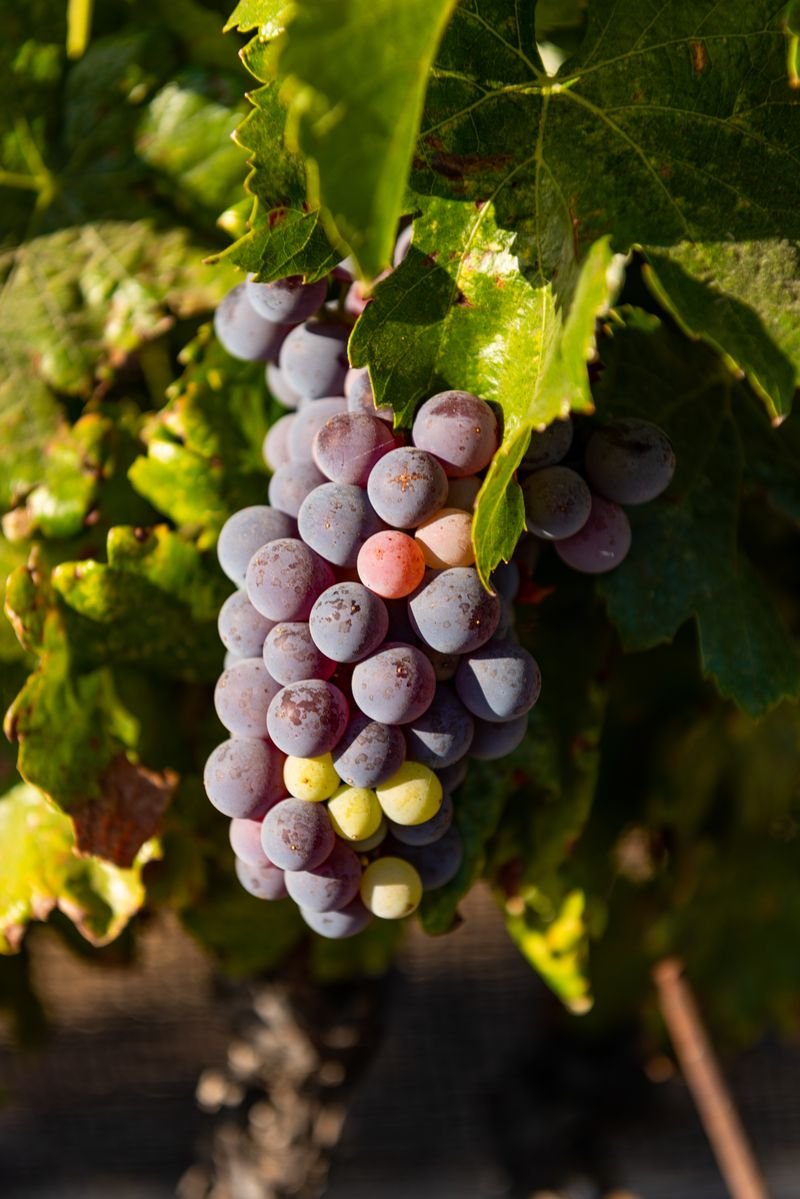
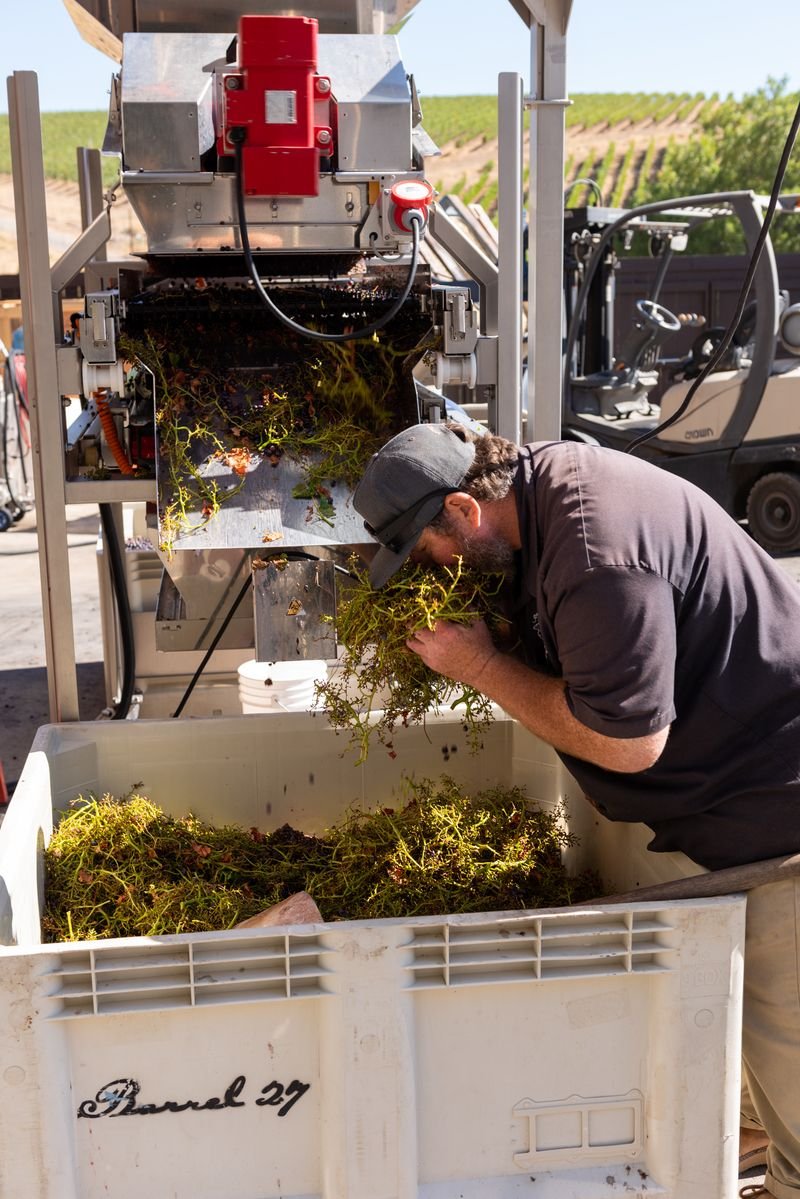
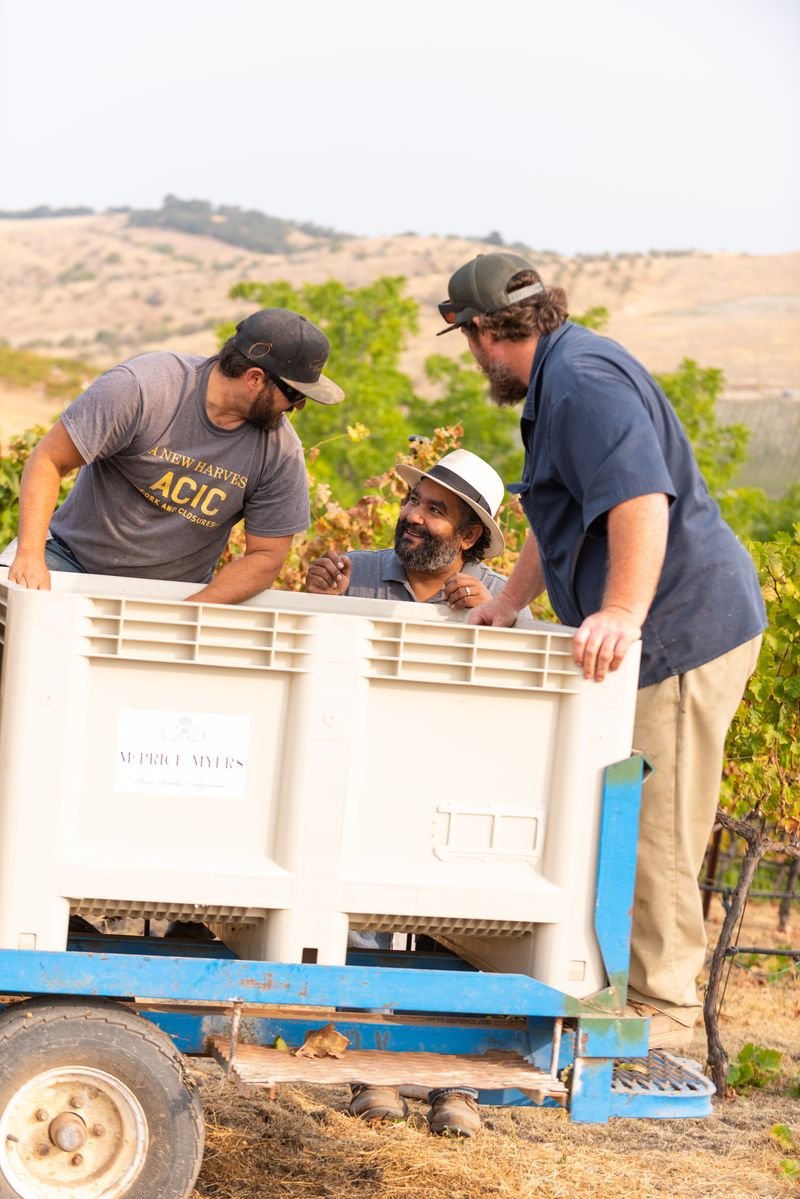
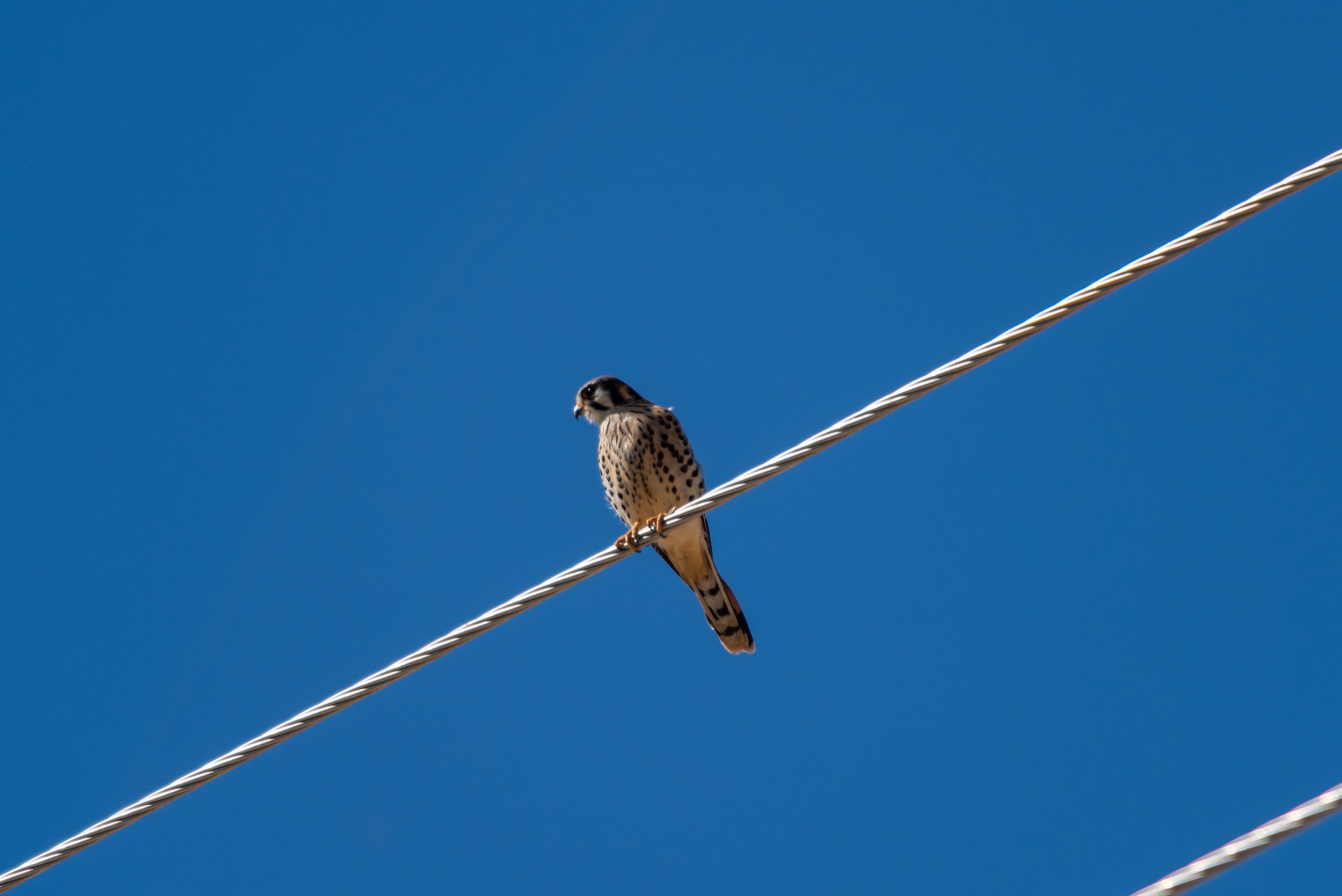
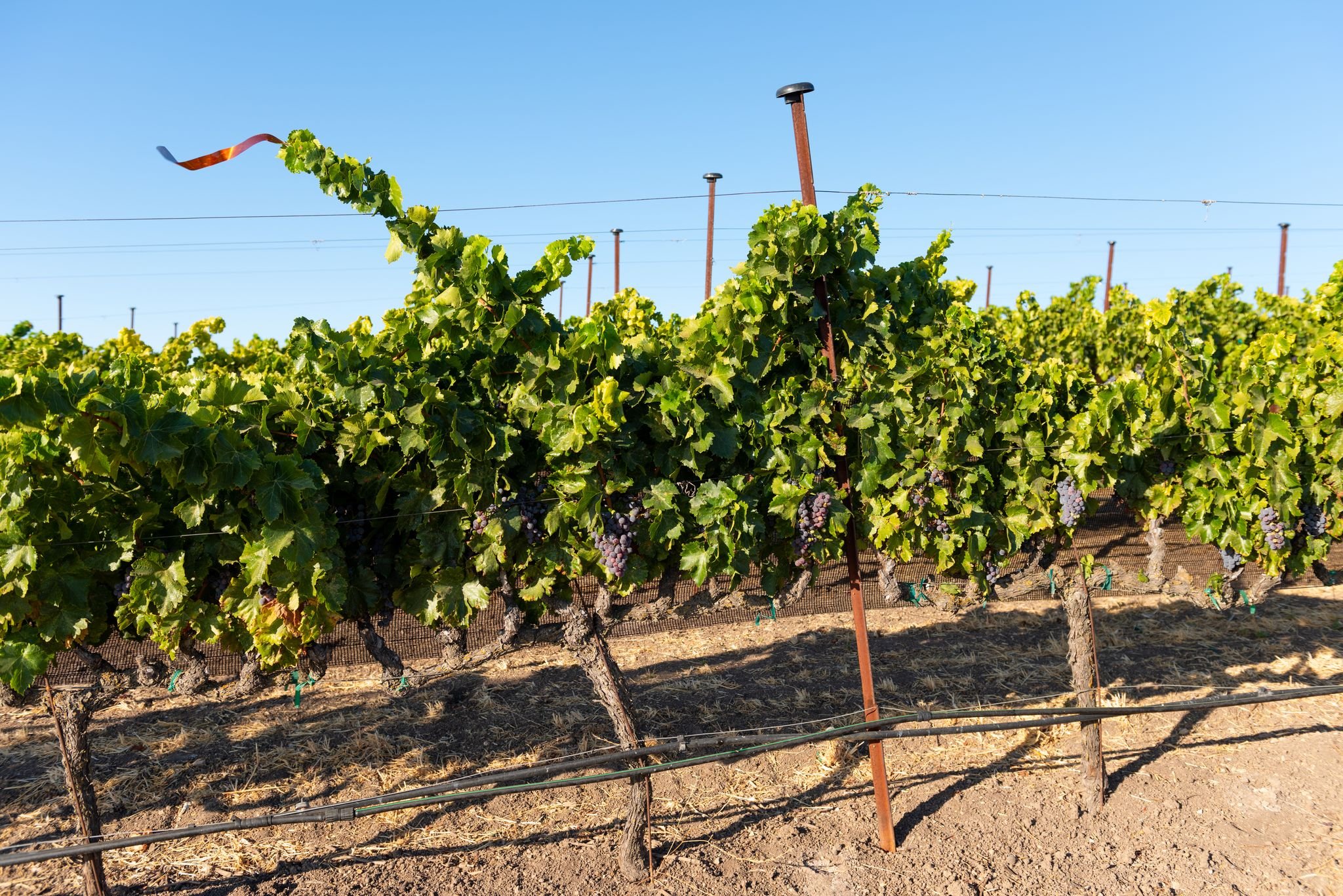
Cultivating Community: Our Cultural Roots
We’re proud to be recognized as family-forward—winning the SLO County Family-Friendly Workplace Award in both 2023, 2024, and 2025 for nurturing our team members’ physical and emotional wellbeing.
But our roots go deeper. We actively give back—championing local fundraisers and forging meaningful community connections that align with our mission of hospitality, stewardship, and shared purpose.





